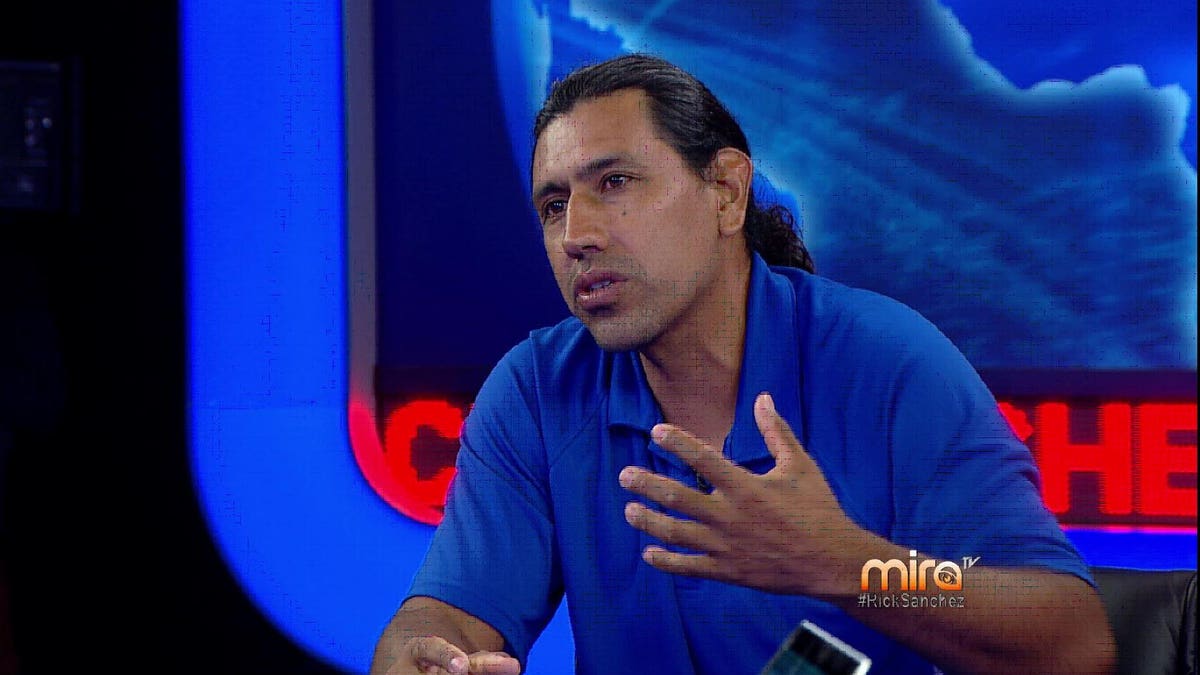
Gabriel Mejia says it’s time to change how Mexican immigrants see themselves.
Immokalee, Florida is a far cry from Venice, Rome, Paris, or for that matter from Mexico City, where Gabriel Mejia grew up. Mejia travelled the world as a young man representing Mexico’s “Cruz Azul” soccer club.
Today, Mejia lives in this infamous south-central Florida city known for tomatoes, beans, sugarcane and poverty. It is one of the poorest cities in the country. It’s been that way since 1960, when the entire country was introduced to a seemingly miserable little corner of the world in a CBS documentary known as the “Harvest of Shame.”
If we talk about ourselves as poor and overworked, our children will grow up to be poor workers. But if we inspire them to learn and grow and plan for college, that’s what they’ll do.
Here is how legendary TV newsman Edward R. Morrow began his story. “This scene is not taking place in the Congo. It has nothing to do with Johannesburg or Cape Town. It is not Nyasaland or Nigeria. This is Florida. These are citizens of the United States, 1960 ... This is the way the humans who harvest the food for the best-fed people in the world get hired. One farmer looked at this and said, “We used to own our slaves; now we just rent them.”
How much has changed in this small Florida town beaten by the heat and known as well for its very large alligators? Not much, many would argue. Today, Hispanics make up 73 percent of the population. Only a third of them finished high school, compared with a national average of 85 percent. And more than a third live below the poverty level; nationally, that figure is 10 percent.
You know those cherry and grape tomatoes so popular these days, the ones used to color your salad? Do you know where they come from? Immokalee. Do you know how they get to your plate? Immigrants who spend upwards of 10 to 14 hours of back breaking work in the fields, pick’em, clean’em and pack’em just for you. And Gabriel Mejia works among them.
Ask Mejia if he thinks Mexicans are exploited and you’ll get a surprising response — more like a rebuttal, really. “We’re not victims, nor do we want to be seen that way,” says the proud former athlete. “We want our children to believe that they can achieve anything they want in this country, we don’t want them to grow up thinking of themselves as victims.”
The children of Immokalee’s immigrant workers don’t get to see much of their parents. Mamá y papá are usually either in the fields or being transported to and from. It is for that reason that many of the children have for years failed to prosper in broken-down communities and schools that often lacked the resources to help them break the cycle of poverty.
Enter Gabriel Mejia.
Mejia was so determined to make a difference in the lives of young immigrants, so determined to make sure they aspired to a better life than that of their parents, he chose to do something about it by founding an after-school program.
The motto of the Immokalee Soccer School is “where angels learn to fly.” Immokaleesoccerschool.org endures on whatever donations they can gather as a non-profit 501c.
Mejia, with his royal blue coaching shirt seemingly un-ironed and his swath of dark black hair uncombed and pulled back, tells me all he wants from life is a chance to help other immigrants. He says it’s not about money or recognition; it’s about being there for other undocumented immigrants who came here just like him.
“They give me more than I could ever possibly give them,” says Mejia. “I learn from them about hope.”
Mejia says it’s time to change how Mexican immigrants see themselves. “I want to change how our children think about themselves, if we talk about ourselves as poor and overworked, our children will grow up to be poor workers,” says Mejia. “But if we inspire them to learn and grow and plan for college, that’s what they’ll do.”
Fifty-three years ago, Morrow’s “Harvest of Shame” introduced us to the plight of the poor migrants of Immokalee, Florida. This Friday, a much lesser-known man named Gabriel Mejia will hope to replace that story with one of hope, as he accepts a lifetime achievement award in a swanky hotel near Downtown Miami far away from the hard scrabble life of south-central Florida.
It’s a distinction that will be bestowed upon him by the government of Mexico and the Mexican American Foundation, Mex-I-Can” founded by renowned Mexican actress and producer Gloria Mayo in an effort to acknowledge immigrants who are changing how Americans see Mexican immigrants by changing the way they see themselves.
It’s a cause whose description fits Mejia like a glove.




















